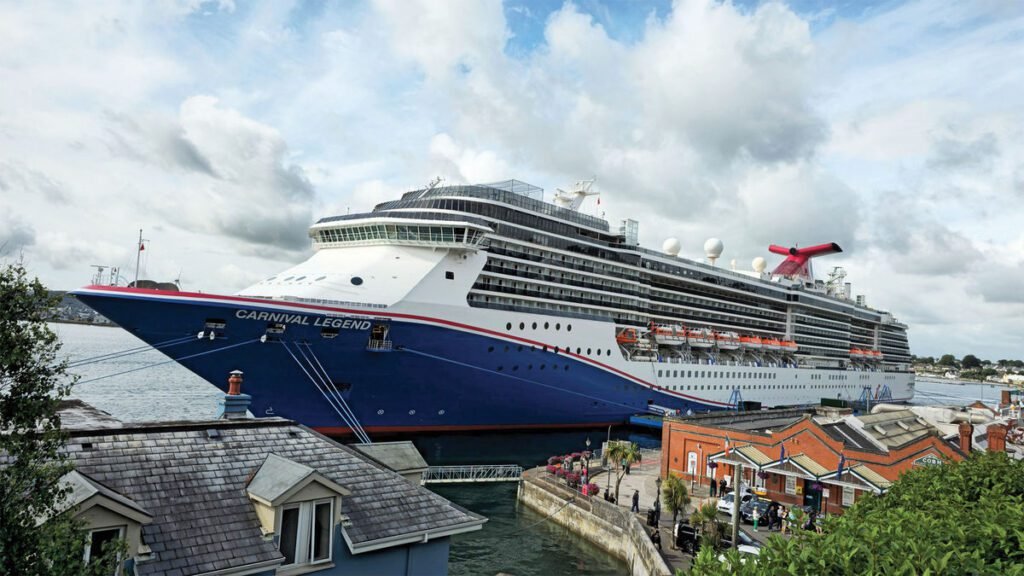Following the recent fluctuations in the stock market and geopolitical tensions, particularly the conflict in Iran, the cruise industry has experienced notable shifts in consumer behavior. Initially, many travelers hesitated to book their next cruise, reflecting a temporary stir of uncertainty. However, as the news cycle progressed, booking activity resumed, indicating a resilience among cruise enthusiasts.
Cruise industry analyst Patrick Scholes from Truist Securities noted that while cruise customers can be "notoriously panicky," trends indicate that their booking patterns are generally stable, notwithstanding brief interruptions tied to major news events. According to cruise lines and agencies, disruptions commonly caused by prolonged conflicts appear to be less impactful than in previous years. Major players in the industry such as MSC Group and Carnival Corp reported minimal changes in overall booking rates.
Scholes elaborated on the behavior of American cruise customers, describing them as somewhat skittish travelers. "Historically, every time there’s an international conflict, especially near popular cruise destinations, Americans become apprehensive," he stated. For instance, during the height of the June conflict involving Iran, there was a noticeable dip in European cruise bookings. Nevertheless, once travelers perceived that the situation would not escalate into a broader conflict, they quickly returned to booking cruises.
"Cruisers tend to breathe a sigh of relief when conflicts do not escalate,” Scholes explained. He noted a brief slowdown in bookings immediately following the surge of tensions in June, but overall trends have since bounced back.
The economic concerns noted in April transitioned into a recovery for Carnival Corp, with sales showing a positive trend in May and early June, as CEO Josh Weinstein highlighted during a recent earnings call. This uptick in bookings has resulted in a scarcity of summer cabin availability as travelers plan ahead for next year.
Strength in European cruise sales also signals consumer confidence, with third-quarter bookings looking particularly strong, according to Weinstein. The rising demand for cruises to Europe aligns with insights from Scenic Group and Cruise.com, both of which report robust interest in Mediterranean and river cruises.
Shifting Booking Preferences
Market analysts and cruise vendors are noticing a trend toward more localized travel options, attributed largely to current world events. Marisel Aleman, Vice President of Cruise Elite, remarked that travelers are increasingly choosing cruises closer to home, responding to the dynamic global landscape.
While the Mediterranean may offer ample availability for travelers, it remains an attractive option for many, with some capacity reported as being healthy yet not frantic. Bill Coyle of KHM Travel Group noted that while there remains room for additional bookings, the overall situation isn’t desperate.
Even affluent travelers are not immune to the impact of global events on their travel decisions. Carlos Edery of Luxury Cruise Connections observed a spike in cancellations among his clientele, typically comprised of older travelers who tend to opt for longer journeys.
Despite varying consumer behaviors, experts like Mark Wilson from Arrivia believe that fluctuations in cruise sales, especially in Europe, are merely "noise" and are unlikely to have lasting adverse effects on the market.
The Resilient Cruise Industry
The cruise industry combines unpredictability with resilience. Josh Tolkin, Vice President at World Travel Holdings, pointed out that while major world events can influence booking trends, customers exhibit an ability to adapt, leading to a gradual recovery of bookings.
As the industry looks toward the upcoming years, Tolkin anticipates a normalization of consumer interest following the post-COVID travel boom. "2025 is projected to return to more normal booking patterns compared to the surge we’ve seen post-pandemic," he noted, with 2026 expected to further align with typical trends.
In summary, while the cruise industry has navigated recent challenges posed by geopolitical and economic uncertainties, the strong resurgence in bookings and increasing consumer confidence suggest a promising outlook for the future of cruise travel.


